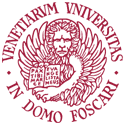Summary
Academic year 2024/2025
Where
Department of Environmental Sciences, Informatics and Statistics (DAIS), Scientific Campus, via Torino 155, 30172 Mestre (VE), Italy.
For further information please contact the Scientific Campus at campus.scientifico@unive.it.
Head of studies
Prof. Lucchese Claudio (coordinator of the Educational Committee claudio.lucchese@unive.it)
Announcements and regulations
The Bachelor’s Degree Programme Academic Regulations provide for several organisational aspects: learning objectives, admission information, curriculum, exams, final exam, careers, etc. Over their university career, students should comply with the regulations in force at the time of their enrolment.
Access to the programme
Limited admission, 60 students with 5 places reserved for non-EU students residing abroad and 3 are reserved for Chinese students living in China, as part of the Marco Polo Project.
Admission information is available on the webpage dedicated to the programme admission.
Admission requirements
To be eligible for admission to the Bachelor’s Degree Programme, the students are required to have a higher secondary school leaving certificate or other equivalent foreign certificates, deemed suitable. To be admitted to the Bachelor’s Degree Programme, students are required to have the knowledge acquired through the secondary school curricula.
Adequate command of English is required (at least B2 of CEFR), as well as logical skills and verbal comprehension. An assessment to certify that the candidate has said competencies is mandatory. The assessment procedure, and any additional educational obligation to be met over the first academic year in case the assessment is not successful, are provided for in the academic regulation of the programme, available on the webpage dedicated to the admission test.
Admission with international qualification
Applicants with international qualification must have obtained a secondary school diploma after having completed at least 12 years of schooling. The preliminary evaluation of the qualification is mandatory. Procedures and deadlines are available on the dedicated online platform.
Further details in the webpage dedicated to Degree-seeking students.
Course overview
The Bachelor’s Degree Programme and related Career Counselling (pursuant to Ministerial Decree no. 6/2019) in 'Hospitality Innovation and e-Tourism' (Ministerial degree code L-15 Tourism) provide for an international educational programme aimed to prepare new professional profiles. The Programme is entirely taught in English, and it combines management skills in the Hospitality Industry and other competencies related to digital transformation and sustainability of tourism services. Moreover, graduates will acquire knowledge related to the economic, cultural, anthropological, and environmental aspects of tourism.
The Bachelor’s Degree Programme was created in partnership with Cassa Depositi e Prestiti, Fondazione della Scuola Italiana di Ospitalità (SIO) and TH Resorts. More specifically, the SIO Foundation works to increase competitiveness and promote growth in the Italian tourism market by training specialised personnel skilled to improve competitiveness and innovation across Italian tourism and hospitality businesses.
Thanks to the combination of theory lessons, workshops, and internships in hospitality businesses, graduates will acquire specific operational skills which will promptly favour their access to the labour market. Given the professional nature of this Programme, graduates usually do not enrol in MAs. The skills and competencies provided for in the 'Hospitality Innovation and e-Tourism' Bachelor’s Degree Programme can be divided into three intertwined macro-components.
- The first component mainly consists of the managing skills (financial and economic management, marketing, HR management, organisation, management control system, legal aspects, etc) required to work in middle management operational roles for several areas of the hospitality and tourism sector, and mostly with businesses providing for enlarged hospitality services.
- The second macro-component is linked to digital and ICT technologies, as well as statistics skills. Said elements are pivotal when training new professionals in the tourism and hospitality sector. The wide distribution and development of ICT technologies across this sector led to major changes in tourism business processes and can be summarised with the word e-Tourism (integrated property, inventory and CRM management, systems, e-commerce, revenue management, search engine and online social networks, tourism big data analytics, mobile technologies).
- The third macro-component of the programme aims to provide graduates with the ability to link tourism to specific social and cultural aspects of the territory (museology, history, geography, etc.) including skills in foreign languages and Asian cultures.
Along with the English language, this Programme also provides graduates with the study of another European language.
In addition to that, the high number of educational credits that graduates can collect through workshops and internships related to each subject will ensure the acquisition of specific operational skills for the outgoing professional profiles.
Examination assessment and graduation
The Bachelor’s Degree Programme educational activities are provided through lectures, workshops, and internships which will help students acquire all practical and theory skills required to work in this field, as well as the ability to constantly update.
Learning will be assessed through written and oral exams; students will be requested to write specific reports to be presented and discussed in class.
The learning activity includes class lectures, workshops, seminars, and internships designed to provide for a large set of skills required to face the labour market.
The student’s competencies will be assessed over their university career through written and oral exams.
For further information please refer to the webpage dedicated to the final examination.
Access to further studies
Given the professional nature of this Programme, graduates usually do not enrol in MAs. Students who want to enrol in MAs might be required to perform additional exams before.
Occupational profiles
Over the academic course, the students will acquire the following skills and competencies which will enable them to gain specific professional and operational skills according to their professional role:
- hotel management competencies, including legal aspects, the management of human resources, and economic and business dynamics such as strategic planning, observation and assessment of market performance, strategic and operational marketing, financial analysis;
- skills related to ICT enabling technologies, which are used for promotional and communication purposes, as well as to manage internal data and maximise the customer experience;
- revenue management skills, big data analysis, management of sales channels related to services and OTAs (Online Travel Agencies), online digital marketing (through web and social media) to maximise the implementation of service sales channels;
- coordination skills for the management of the operational organisation in the hospitality sector across several units, such as room division, Food & Beverage, and housekeeping, including sustainability;
- product/service management skills, in terms of customer targeting based on the local social and cultural context of the facility;
- knowledge of local cultural aspects, including food and wine, to enhance the customer experience;
- soft skills on customer care, to increase the customers’ loyalty and retention and provide for better management of all the hospitality units;
- knowledge of English for hospitality purposes and an additional foreign language to be used for communication, promotional, and customer care purposes.
Graduates might be employed as middle managers and cover operational and managing tasks across different units of the hospitality sector, in Italy and abroad. They might work with cutting-edge tourism firms involved in enlarged hospitality, as well as hotels and their specific internal units (i.e., marketing, ICT, Food and Beverage, Guest Relations, events), businesses involved in the management of tourist destinations, and other public institutions operating in the sector.
Graduates usually do not enrol in MAs.

